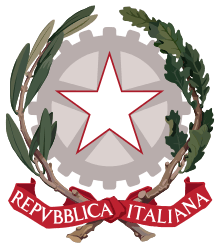Maria Elena Boschi
| The Honourable Maria Elena Boschi MP | |
|---|---|
 | |
| Minister for Constitutional Reforms and Relations with the Parliament | |
|
Assumed office 22 February 2014 | |
| Prime Minister | Matteo Renzi |
| Preceded by |
Gaetano Quagliariello (Constitutional Reforms) Dario Franceschini (Relations with Parliament) |
| Member of the Chamber of Deputies | |
|
Assumed office 15 March 2013 | |
| Constituency | Tuscany |
| Personal details | |
| Born |
24 January 1981 Montevarchi, Tuscany, Italy |
| Nationality | Italian |
| Political party | Democratic Party |
| Residence | Montevarchi, Arezzo |
| Alma mater | University of Florence |
| Profession | Lawyer, politician |
| Religion | Roman Catholicism[1] |
Maria Elena Boschi (Italian pronunciation: [maˈriːa ˈɛːlena ˈbɔski];[2][3] born 24 January 1981) is an Italian politician and lawyer who, since 22 February 2014, has served as Minister for Constitutional Reforms and Relations with the Parliament, delegated to the implementation of the Government Programme in the government of Matteo Renzi.
Early life
Born in Montevarchi but raised in Laterina, a small town in the province of Arezzo, where her family has lived for generations; daughter of Pierluigi Boschi, owner of the farm Il Palagio, member of dozens of agricultural and wine associations of the territory, provincial director of Coldiretti, board member of the Camera di Commercio of Arezzo and from 2011 to 2015 director of the Banca Etruria, of which by 2014 was also vice-president, and Stefania Agresti, a headmaster who served three terms in the City Council of Laterina, the last of which as vice-mayor; Stefania Agresti was also a candidate in 2010 regional election in Tuscany for the Democratic Party, but she was not elected. Maria Elena Boschi is the first of three siblings: Emanuele Boschi, a public accountant, and Pierfrancesco Boschi, a civil engineer.
Training and forensic activities
Maria Elena Boschi grew up in a fervent Roman Catholic family; she has always participated in the religious life of her parish, as altar girl, catechist, reader, and volunteer; in 1997 she participated in the World Youth Day in Paris and, in 2000, in the one organized in Rome for the Jubilee.[4]
Boschi received a classical education in high school Francesco Petrarca of Arezzo and passed the final exam with 100/100. Then she graduated with 110/110 cum laude in Law at the University of Florence. She was a member of the Examining Board of Civil Law of the School of Specialization for the Legal Professions of Florence. Moreover, Boschi was a member of the Publiacqua Board, a company in charge of water management for the entire province of Florence from 2009 to June 4, 2013, when she was elected to the Chamber of Deputies.
Early political career

Maria Elena Boschi entered in politics in 2008, during the primary election to become Mayor of Florence, where she was the spokesman of the committees in support of the candidacy of Michele Ventura, a close collaborator of the social democratic leader Massimo D'Alema. Ventura's main challenger was the young President of Florence's Province Matteo Renzi, who went on to win the election. After the primary, she became a close adviser to Renzi.[5]
Boschi was a member of the city direction of the Democratic Party in Florence and organized numerous editions of Leopolda, the annual meeting of the Democratic faction near to Renzi.[6] Moreover, together with Simona Bonafé and Sara Biagiotti, she was one of the three coordinators of Matteo Renzi's campaign for the 2012 centre-left primary election.[7]
After the 2013 general election, Maria Elena Boschi was elected to the Chamber of Deputies in the constituency of Tuscany.[8] She is a member of the Constitutional Affairs Commission.
On 9 December 2013, after the victory of Renzi in the Democratic leadership election in December 2013, she joined the National Secretariat of the PD, as Head of Institutional Reforms.
On 21 February 2014, following the fall of the Enrico Letta government, Boschi was appointed Minister for Constitutional Reforms and Relations with the Parliament in the Renzi Cabinet; on the following day she was sworn in by the President Giorgio Napolitano.
Government positions
Boschi is the current Minister for Constitutional Reforms and Relations with Parliament with responsibility for the implementation of the Renzi government program; she is the first woman in the history of the Republic to become Minister of Constitutional Reforms and the second as Minister of Relations with the Parliament.
Upon becoming Prime Minister, Matteo Renzi stated that one of her most important tasks was to achieve constitutional reforms. The Italian institutional framework had remained essentially unchanged since 1 January 1948, when the Italian Constitution first came into force after being enacted by the Constituent Assembly on 22 December 1947.[9]

The first stage of reform package aimed to abolish the so-called "perfect bicameralism", which gave identical powers to the Chamber of Deputies and the Senate; the reforms would substantially decrease the membership and power of the Senate. Under the reforms: the Senate's power to force the resignation of the Government by refusing to grant a vote of confidence would be removed; only a few types of bills, including the constitutional bills, constitutional amendments, laws regarding local interests, referendums and the protection of linguistic minorities, would need to be passed by the Senate; the Senate could only propose amendments to bills in some cases, with the Chamber of Deputies always having the final word; and the membership of the Senate would be changed, with regional representatives appointed in a manner virtually identical to Germany's Bundesrat.
On 11 March 2014, the Chamber of Deputies approved both the plans to overhaul the Senate and the second stage of Renzi's constitutional reforms, a flagship electoral reform law that would see Italy's voting system overhauled.[10] On 26 March, despite objections raised by several parties in the coalition, the Government won a vote in the Senate on the bill reforming the provinces, with 160 voting in favour and 133 against. After several amendments to the initial text, the reform passed the examination of the Committee on Constitutional Affairs, whose speakers were Senators Anna Finocchiaro (Democrat) and Roberto Calderoli (Lega Nord).[11] Finally on 8 August, the Senate approved the constitutional and electoral reform proposed by the government.[11]
.jpg)
In April 2014, Renzi and Boschi proposed that Italy adopt what he called the Italicum voting system, a proportional representation system with a majority bonus for the party which obtained over 40% of the vote, in order to provide for stable and long-term government. In order to approve the new electoral law, which was opposed by the Five Star Movement and a minority of his own Democratic Party, the government gained the support of former Prime Minister Silvio Berlusconi, who was still the leader of Forza Italia, despite having been expelled from the Senate due to his sentence for tax evasion. The alliance between Renzi and Berlusconi was named the Nazareno Pact, from the name of the street in Rome where the headquarters of the Democratic Party are located, where the two leaders met for the first time to discuss the reform.[12] Despite concern from some within the Democratic Party, the Italicum was given final approval by the Italian Senate on 27 January 2015, thanks to support from Forza Italia Senators.[13]
On 28 April 2015, concerned that the reform may not pass, the government announced he would hold a confidence vote to approve the electoral reform changes. The Five Star Movement, Forza Italia and some left-wing Democratic Party members strongly opposed this decision, with some seeking to draw comparisons between Renzi and Benito Mussolini.[14] It would be only the third time that an electoral law was twinned with a confidence vote, after Mussolini's Acerbo law and Alcide De Gasperi's "Scam law".[15] On 4 May the Chamber of Deputies finally approved the electoral changes with 334 votes for and 61 votes against, the latter including a faction of the PD. The reforms will take full effect in July 2016.[16]
November 2016 constitutional referendum

After constitutional reforms had passed both the Chamber of Deputies and the Senate multiple times, the government announced that he would hold a constitutional referendum in November 2016 to seek approval for the changes; since the reform was not approved by more than two third of the Parliament, according to article 138 of the Constitution, a referendum could be required.[17]
Voters will be asked whether they approve of amending the Italian Constitution to transform the Senate of the Republic into a "Senate of Regions" composed of 100 senators made up of regional councillors and mayors of large cities.[18]
Maria Elena Boschi was appointed by Renzi as the organizer of the "Yes Committees", in favour of the reform.[19]
Controversies
Banca Etruria scandal
On 18 December 2015, the Chamber of Deputies rejected (with 129 yes and 373 no) a no-confidence motion promoted by the Five Star Movement as a result of the decree "save the banks" issued in November 2015. Among the banks affected by the decision therefore included Banca Etruria, of which Pierluigi Boschi, the father of Maria Elena, was the vice president at the time of receivership in February 2015, while her brother was responsible of cost management, until March 2015. [20]
The petroleum scandal in Basilicata
On 31 March 2016 Federica Guidi, Minister of Economic Development resigned amid allegations that she had sought to shape last year’s budget law to favour an oil project from which her partner, Gianluca Gemelli, who was inquired, stood to benefit financially.[21] By telephone wiretap investigation file it shows that Boschi was mentioned many times by Federica Guidi. On same day the parliamentary opposition have announced a new no-confidence motion against Maria Elena Boschi. The motion was rejected on the basis that Boschi didn't know Minister Guidi was doing a favour to her partner and there was no penal relevance.[22]
References
- ↑ "La regina Maria Elena" (in Italian). Il Foglio.it. 9 March 2014. Retrieved 14 March 2014.
- ↑ Migliorini, Bruno; Tagliavini, Carlo; Fiorelli, Piero. Tommaso Francesco Borri, ed. "Dizionario italiano multimediale e multilingue d'ortografia e di pronunzia". dizionario.rai.it. Rai Eri. Retrieved 12 February 2016.
- ↑ Canepari, Luciano. "Dizionario di pronuncia italiana online". dipionline.it. Retrieved 12 February 2016.
- ↑ http://www.ilsussidiario.net/News/Politica/2014/2/25/IL-LOOK-Maria-Elena-Boschi-vestita-in-blu-da-Madonna-al-presepe/472862/
- ↑ «Renzi sceglie un'aretina nella squadra che curerà il tour per le primarie Pd»
- ↑ http://www.repubblica.it/politica/2015/12/12/news/leopolda_seconda_giornata_con_quattro_ministri-129301522/
- ↑ http://www.huffingtonpost.it/2013/04/22/il-cerchio-magico-di-matteo-renzi_n_3129792.html
- ↑ http://ricerca.repubblica.it/repubblica/archivio/repubblica/2013/01/05/anche-renzi-paracaduta-suoi-ma-li-porto.html
- ↑ Governo Italiano – La Costituzione. 2 – Titolo I
- ↑ "Italian PM Matteo Renzi's electoral reform law clears first hurdle". Guardian. 12 March 2014. Retrieved 29 June 2015.
- 1 2 "The Senate Reform". TheRword October Editorial. Retrieved 22 October 2014.
- ↑ Fabrizio d'Esposito. "Patto del Nazareno, la clausola segreta di Renzi e Berlusconi: "Prodi mai al Colle"". Il Fatto Quotidiano. Retrieved 7 June 2015.
- ↑ "Il Senato approva l'Italicum, Renzi: "Il coraggio paga, andiamo avanti"". Repubblica.it. 27 January 2015. Retrieved 7 June 2015.
- ↑ "Italy PM defies rebels with confidence vote on election law". Reuters. 28 April 2015. Retrieved 7 June 2015.
- ↑ "Italicum: Per Mattarellum sì largo, Porcellum a maggioranza. Fiducia solo su legge truffa, i precedenti". ANSA.it. Retrieved 7 June 2015.
- ↑ "Italy parliament passes Renzi's electoral reform". Yahoo News. 4 May 2015. Retrieved 7 June 2015.
- ↑ Riforme, alla Camera il sì passa senza problemi: e ora si pensa già al referendum
- ↑ La nuova Costituzione e il nuovo Senato
- ↑ Con il referendum sulla Costituzione nasce il partito di Maria Elena Boschi
- ↑ http://corrierediarezzo.corr.it/news/economia/173951/Il-fratello-del-ministro-Boschi-lascia.html
- ↑ http://www.repubblica.it/economia/2016/03/31/news/guidi_intercettazione_emendamento_inchiesta-136632773/
- ↑ http://www.ilgiornale.it/news/politica/caso-guidi-appalti-e-legge-navale-boschi-me-lha-promesso-1243718.html
External links
| Wikimedia Commons has media related to Maria Elena Boschi. |
